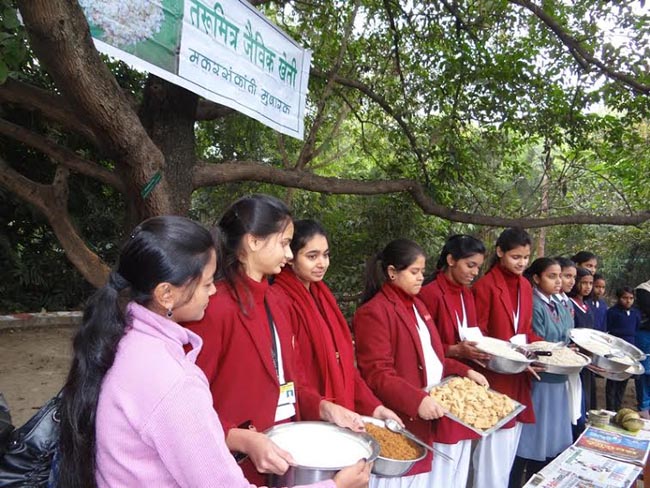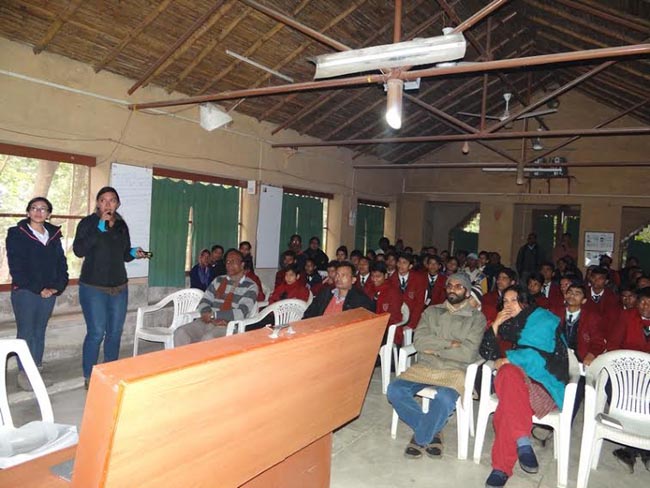|
14/01/2014
Eco-Makar Sankranti Celebrated |
Patna. 13 Jan: Celebrated in various names, Chura-dahi parv in Bihar, Khichari in UP, Lohri in Punjab, Bihu in Assam, Pedda padunka in AP, Pongal in Tamilnadu, Makara vilakku in Kerala, the festival of the Sun, Makar Sankranti is the only one popular Indian feast based on the Solar Calendar.
Students and teachers from nearly 20 schools of Patna gathered at the Tarumitra Ashram to celebrate the Makarsankranti on the eve of the festival. They tried to make it an eco-fest with Chura and dahi “flattened rice and curd,” out of home-grown rice without pesticides or chemical fertilizers. Explaining the background of the festival, Kanchan Pathak, described the festival centred around the return of the Sun from the Southern hemisphere bringing warmth and life to the Earth. He said that the entire festival is centred on rice and rice preparations with sesame seeds and coarse sugar. Two volunteer students from the University of Zamorano, Central America, Karina Gomez and Anita Morales were the chief guests at the occasion. Both Karina and Anita on an eco-mission to Bihar. “We were awed by the knowledge that India once had over 20,000 varieties of rice!” said Anita.
The discussion on the rice led to the overwhelming presence of poison in the food especially rice. Deadly chemicals like Endosulfan has turned up above tolerance limits in the food preparations. “There is an urgent need to cultivate our staple food rice without pesticides!” said Anuradha who organized the event at Tarumitra. She also said the Bio-diversity is the biggest loser in the process. She said that honey bee colonies have disappeared entirely from the State. Bhavya and Shivam Paritosh from St. Michael’s said that Tarumitra bio-reserve had seven 12-year old colonies of honey bees thriving on the diversity of trees and plants. “Within a span of last three months all these colonies have vanished” said D. N Prasad who is an expert on handling honey bees. Karina and Anita, from Central America, in their presentations reinforced the fear that pesticides are the main cause for the disappearance of honey bees. Zamorano university specialized in honey-rearing has been facing a crisis of survival. “Bees from one bee hive can pollinate 25 million trees and the work cannot be substituted by any other means” said Anita. “Two third of our food materials come from bee-pollinated plants.” Said Karina Gomez. Students and teachers from St. Michael’s, Don Bosco, B. D Public, Government Girls, Govt Middle school Digha, Rashtriya Vikas, Mother India Mission, Gyan Jyoti Public, B.L Public, R. D Public, Sri Chandra, Mother Theresa, Arayan Public, Dr Ambedkar, Gyan Deep, Ankur Public, Hathua Imperial and Hartman Girls participated in the festivities. Present also were nationally known eco-artists, Atreyee and Blaise from Karnataka, Binod Sigh of Oxygen, Organic cultivators G. Lakra, Pramod Kumar and Fr. Robert Athickal.
|



